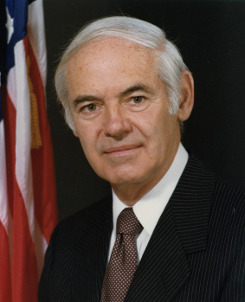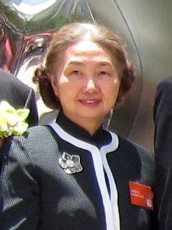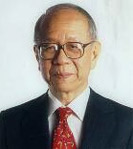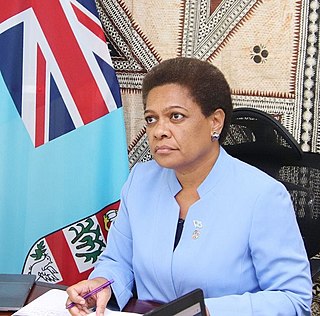Related Research Articles
In most common law jurisdictions, the attorney general or attorney-general is the main legal advisor to the government. In some jurisdictions, attorneys general also have executive responsibility for law enforcement, prosecutions or even responsibility for legal affairs generally. In practice, the extent to which the attorney general personally provides legal advice to the government varies between jurisdictions, and even between individual office-holders within the same jurisdiction, often depending on the level and nature of the office-holder's prior legal experience.
The law officers are the senior legal advisors to His Majesty's Government of the United Kingdom and devolved governments of Northern Ireland, Scotland and Wales. They are variously referred to as the Attorney General, Solicitor General, Lord Advocate, or Advocate General depending on seniority and geography – though other terms are also in use, such as the Counsel General for Wales. Law officers in these roles are distinguished by being political appointees, while also being bound by the duties of independence, justice and confidentiality among the other typical professional commitments of lawyers. These roles do not have any direct oversight of prosecutions nor do they directly lead or influence criminal investigations. This is a distinguishing factor between law officers and the state attorneys general of the United States or US Attorney General.

William French Smith II was an American lawyer and the 74th United States Attorney General. After attaining his law degree from Harvard Law School in 1942, Smith went on to join the law firm of Gibson, Dunn & Crutcher LLP in 1946. Smith became acquainted with California governor candidate Ronald Reagan in 1966, after which Reagan appointed him to the University of California Board of Regents. Smith was nominated for U.S. Attorney General shortly after Reagan's victory in the 1980 United States presidential election, assuming the title on January 23, 1981, and serving until February 25, 1985.

Elsie Leung Oi-sie, GBM, JP is a Hong Kong politician and solicitor. She was Secretary for Justice of Hong Kong from 1997 to 2005 and a member of the Executive Council of Hong Kong.

The chief justice is the Republic of Fiji's highest judicial officer. The office and its responsibilities are set out in Chapter 5 of the 2013 Constitution of Fiji. The chief justice is appointed by the president on the advice of the prime minister.
Graham Everett Leung is a Fijian lawyer who has served as the attorney-general since 5 June 2024. He previously served as the president of the Fiji Law Society. He was also chairman of the Electoral Commission, and was named as judge advocate of a Court Martial panel to retry 20 soldiers convicted mutiny in relation to the Fiji coup of 2000, but a number of complications left his commissioning in that office outstanding until he was finally approved as judge advocate and commissioned as an army officer with the rank of lieutenant colonel on 4 January 2006.
Qoriniasi Babitu Bale was a barrister, a solicitor and a politician who served twice as Fiji's Minister for Justice and Attorney-General, most recently from 2001 to 2006, when he was deposed in the military coup of 5 December. Like many of Fiji's most influential leaders, Bale was a native of Levukana Village in Vanua Balavu in the Lau Islands.
Preeta D. Bansal is an American lawyer who served as the General Counsel and Senior Policy Advisor to the federal Office of Management and Budget from 2009 until 2011. Prior to her work in the Obama administration, she served as a law partner at Skadden, Arps, Slate, Meagher & Flom and as the Solicitor General of New York during Attorney General Eliot Spitzer's first term. She also has been a member and past chair of the United States Commission on International Religious Freedom (USCIRF). She is currently a lecturer at MIT and senior advisor at the Laboratory for Social Machines based at the MIT Media Lab.
Stuart Huggett was a British-born Fijian architect, businessman, and civil servant, who served as Chairman of the Public Service Commission from 2004 to 2006, when he was removed from office on 6 December 2006 by the Military junta which had seized power the previous day.

Aiyaz Sayed-Khaiyum is a Fijian politician and a former cabinet minister. He was the Fijian Attorney-General and the Minister for Economy, Civil Service and Communications, and also served as the Minister responsible for Climate Change under the FijiFirst government. He is the third-highest polling candidate from the Fijian general elections of 2014, 2018 and 2022.
Sir Paul Christopher Jenkins, KCB, QC (Hon), was a British barrister.

The Office of the Solicitor General of the Philippines, formerly known as the Bureau of Justice, is an independent and autonomous office attached to the Department of Justice. The OSG is headed by Menardo Guevarra.
Reginald Barrett was a Judge (2001–2015), Judge of Appeal (2012–2015) and Acting Judge of Appeal (2016-2020) of the Supreme Court of New South Wales. He had been a corporate and securities lawyer and a partner in Mallesons Stephen Jaques, general counsel for Westpac and 20 year partner with Allen Allen & Hemsley.

Nihal Mahendra Sudrikku Jayawickrama is a Sri Lankan academic. He was the former Permanent Secretary to the Ministry of Justice (1970–1977), Professor of Law at University of Hong Kong (1984–1997), Ariel F Sallows Professor of Human Rights at the University of Saskatchewan, Canada (1992–1993), and Executive Director of Transparency International (1997–2000). He is now an independent legal consultant, and has been the Coordinator of the UN-sponsored Judicial Integrity Group since 2000.

Tan Boon Teik was a Singaporean judge who served as the second attorney-general of Singapore between 1969 and 1992. At the age of 39, Tan was the youngest person to be appointed as attorney-general, and was the longest-serving attorney-general after the Independence of Singapore, after 25 years in office.
The Law of Tuvalu comprises the legislation voted into law by the Parliament of Tuvalu and statutory instruments that become law; certain Acts passed by the Parliament of the United Kingdom ; the common law; and customary law. The land tenure system is largely based on kaitasi.

Mereseini Rakuita Vuniwaqa is a Fijian politician, who served as the Minister for Women, Children and Poverty Alleviation from 2016 until her resignation from the Fiji First Party in 2021. In November 2021, she was appointed as the Global Chair of the Family Planning 2030.

Faiyaz Siddiq Koya is a Fijian politician and Member of the Parliament of Fiji. He served as Minister for Industry, Trade, Tourism, Lands & Mineral Resources from 2014 to 2018. In March 2020, Koya was awarded a Parliamentary seat. In April 2020, after Prime Minister Frank Bainimarama announced a cabinet reshuffle, Faiyaz Koya was appointed the portfolio of Minister for Commerce, Trade, Tourism and Transport.
The Chief Justice of the High Commissioner's Court, more commonly known as the Chief Judicial Commissioner for the Western Pacific, was the chief judicial officer throughout the British Western Pacific Territories from 1877 through 1976. This was a supra-colonial entity established by the Western Pacific Orders-in-Council 1877, and by the Pacific Order-in-Council 1893. Headed by a High Commissioner for the Western Pacific, who was also ex officio the Governor of Fiji, until the end of 1952, it included numerous islands, mostly small, throughout Oceania. Composition varied over time, but Fiji (1877–1952) and the Solomon Islands (1893–1976) were its most durable members.
Sir John Neil Falvey, KBE, QC was a New Zealand-born Fijian lawyer, who served as Attorney General of Fiji from 1970 to 1977. Previously, he had served as legal adviser to the Fijian Affairs Board.
References
- ↑ "Previous Solicitors-General of Fiji". Office of the Attorney-General. © Copyright 2005-2008, Office of the Attorney General. Archived from the original on 20 March 2018. Retrieved 28 September 2015.